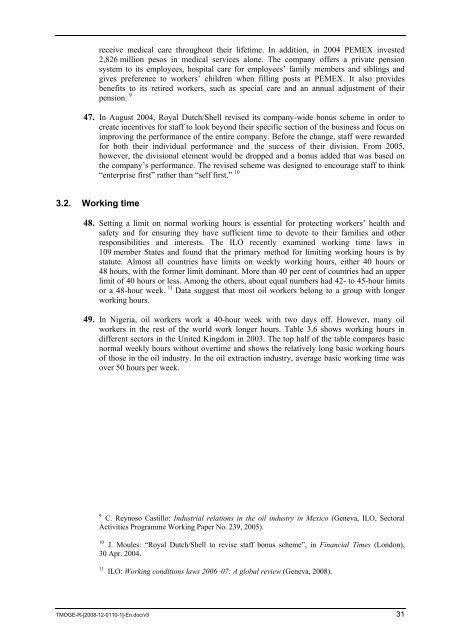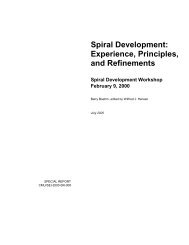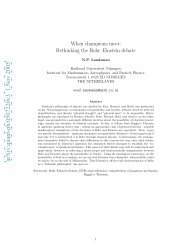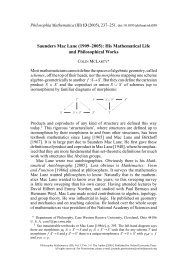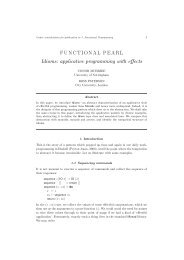wcms_161662
wcms_161662
wcms_161662
Create successful ePaper yourself
Turn your PDF publications into a flip-book with our unique Google optimized e-Paper software.
eceive medical care throughout their lifetime. In addition, in 2004 PEMEX invested<br />
2,826 million pesos in medical services alone. The company offers a private pension<br />
system to its employees, hospital care for employees’ family members and siblings and<br />
gives preference to workers’ children when filling posts at PEMEX. It also provides<br />
benefits to its retired workers, such as special care and an annual adjustment of their<br />
pension. 9<br />
47. In August 2004, Royal Dutch/Shell revised its company-wide bonus scheme in order to<br />
create incentives for staff to look beyond their specific section of the business and focus on<br />
improving the performance of the entire company. Before the change, staff were rewarded<br />
for both their individual performance and the success of their division. From 2005,<br />
however, the divisional element would be dropped and a bonus added that was based on<br />
the company’s performance. The revised scheme was designed to encourage staff to think<br />
“enterprise first” rather than “self first.” 10<br />
3.2. Working time<br />
48. Setting a limit on normal working hours is essential for protecting workers’ health and<br />
safety and for ensuring they have sufficient time to devote to their families and other<br />
responsibilities and interests. The ILO recently examined working time laws in<br />
109 member States and found that the primary method for limiting working hours is by<br />
statute. Almost all countries have limits on weekly working hours, either 40 hours or<br />
48 hours, with the former limit dominant. More than 40 per cent of countries had an upper<br />
limit of 40 hours or less. Among the others, about equal numbers had 42- to 45-hour limits<br />
or a 48-hour week. 11 Data suggest that most oil workers belong to a group with longer<br />
working hours.<br />
49. In Nigeria, oil workers work a 40-hour week with two days off. However, many oil<br />
workers in the rest of the world work longer hours. Table 3.6 shows working hours in<br />
different sectors in the United Kingdom in 2003. The top half of the table compares basic<br />
normal weekly hours without overtime and shows the relatively long basic working hours<br />
of those in the oil industry. In the oil extraction industry, average basic working time was<br />
over 50 hours per week.<br />
9 C. Reynoso Castillo: Industrial relations in the oil industry in Mexico (Geneva, ILO, Sectoral<br />
Activities Programme Working Paper No. 239, 2005).<br />
10<br />
J. Moules: “Royal Dutch/Shell to revise staff bonus scheme”, in Financial Times (London),<br />
30 Apr. 2004.<br />
11 ILO: Working conditions laws 2006–07: A global review (Geneva, 2008).<br />
TMOGE-R-[2008-12-0110-1]-En.doc/v3 31


